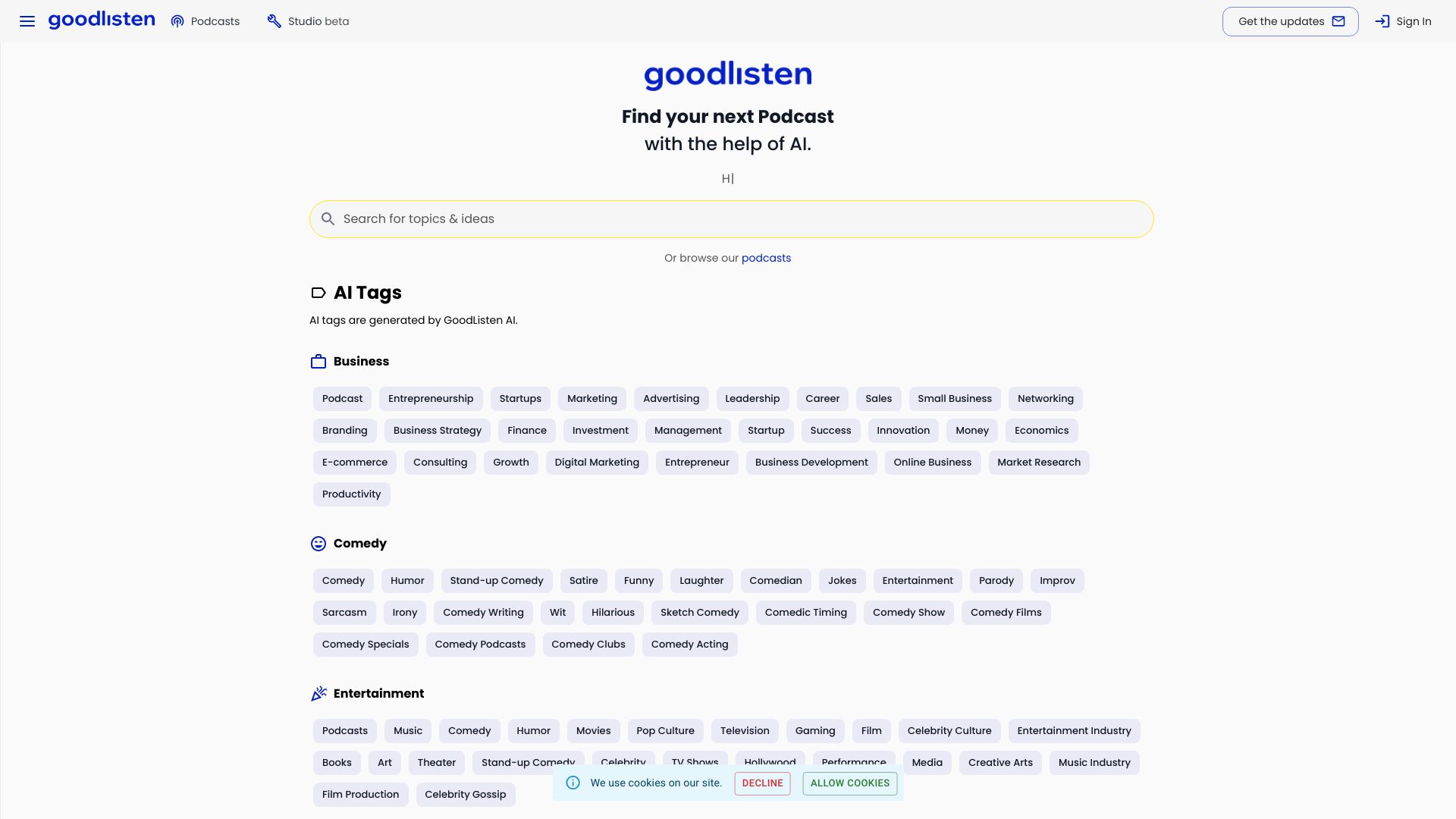GoodListen is an AI-driven audio comprehension app for podcast creators and listeners. It helps discover new podcasts, skip to exciting chapters, clips, or read quick summaries. For creators, it repurposes long podcast audio into highlights, chapters, and clips in one click using generative AI. It works seamlessly with Spotify and YouTube, automatically generating shareable content from new episodes.
GoodListen
AI-powered podcast tool for discovery, summarization, and content repurposing.
Visit Website
What is GoodListen?
How to use
Listeners can discover new podcasts and access AI-generated highlights and summaries. Creators can save their RSS feed to automatically generate highlights, chapters, and clips for their podcasts.
Core Features
- AI-driven audio comprehension
- Podcast discovery
- Automatic highlight, chapter, and clip generation
- Podcast summarization
- Integration with Spotify and YouTube
Use Cases
- Listeners discovering new podcasts and quickly understanding their content.
- Podcast creators repurposing long audio into short, engaging clips for social media.
FAQ
What does GoodListen do?
GoodListen is an AI-driven audio comprehension app that helps podcast listeners discover new content and allows creators to repurpose long audio into highlights, chapters, and clips.
How does GoodListen work with Spotify and YouTube?
GoodListen seamlessly integrates with Spotify and YouTube, automatically generating highlights, chapters, and clips that can be shared on these platforms.
Who created GoodListen?
GoodListen was created by engineers and scientists from Spotify and Semrush.
Pricing
Pros & Cons
Pros
- Saves time for both listeners and creators.
- Enhances podcast discoverability.
- Simplifies content repurposing for marketing.
- Uses cutting-edge AI and NLP technology.
Cons
- Reliance on AI for content generation may not always be perfect.
- Potential dependence on the platform for content distribution.
- The quality of AI-generated content depends on the quality of the original audio.